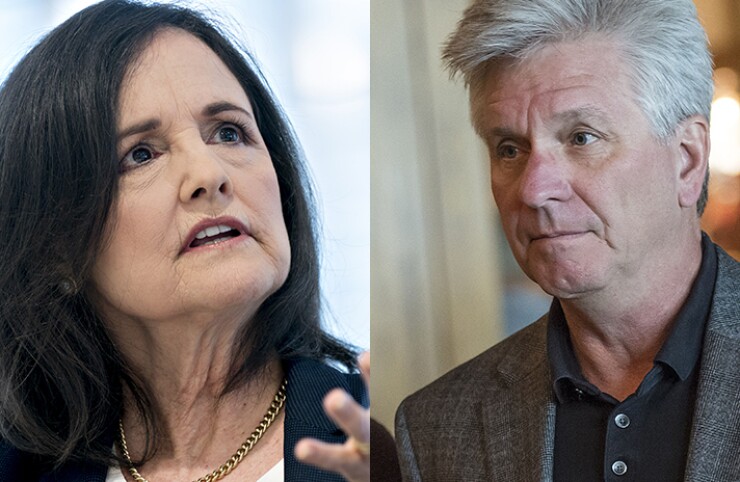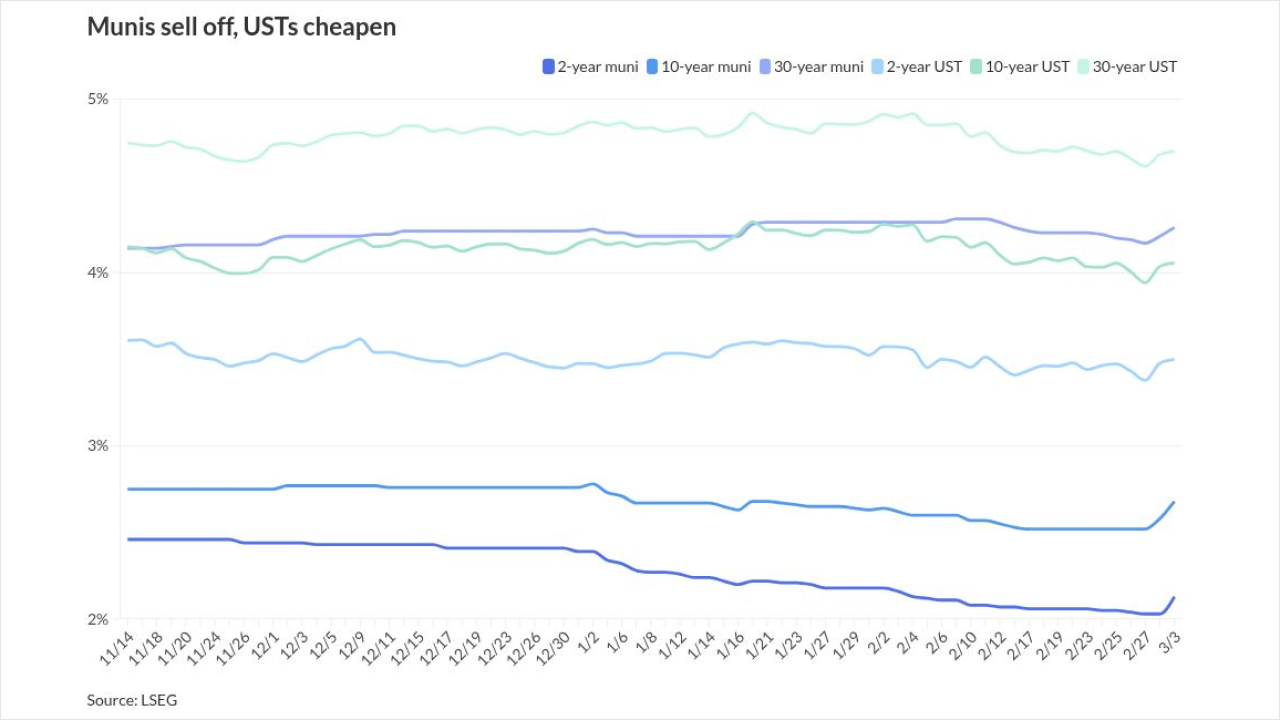Want unlimited access to top ideas and insights?
Unhappy with the Federal Reserve’s unwillingness to capitulate to his demand for lower rates, President Trump Tuesday tweeted that he will nominate economist Judy Shelton, who advised his transition team, and Christopher Waller, executive vice president and director of research at Federal Reserve Bank of St. Louis, both of whom seemingly would back lower rates.
Waller’s path to nomination appears to be easier than Shelton’s, observers say. Shelton backs a return to the gold standard, a position which helped sink Herman Cain’s proposed nomination.
“At this point, any nominee would face a higher level of Senate review given Trump’s stated desire to impair the historic independence of the Fed with respect to its monetary policy making authority,” according to Karissa McDonough, fixed income specialist at People's United Advisors. “This is what ultimately led to the withdrawal of the two prior nominees — their past records and statements would not be able to withstand the scrutiny involved in the confirmation process.”

Waller, she said, “may be able to better withstand the rigors of the Senate process. While he has questioned the efficacy of the Phillips curve, he is also a staunch defender of Fed independence which is much needed in an environment where the administration has shown a complete lack of regard for it.”
Shelton, U.S. executive director for the European Bank for Reconstruction and Development, “has articulated mixed views on monetary policy.” In printed opinion articles she “supported the gold standard, keeping rates higher through the recovery, and took issue with quantitative easing asset purchases,” McDonough said. “She has seemed to switch her views more recently to support lower rates, however. While an evolution in thinking is not necessarily a problem, it does create additional uncertainty surrounding her position regarding Fed independence and how she views the role of monetary policy in supporting the economy.”
Shelton, “is another unconventional choice,” said Mark Hamrick, senior economic analyst and Washington bureau chief for Bankrate.com, who noted “Her previous support for the gold standard is but one indication of her non-traditional thinking.” With Trump’s high regard for “loyalty,” he said, “it shouldn’t be a surprise that she was an advisor to the Trump campaign.”
Given her position changes, “Just how loyal she might turn out to be, if confirmed, remains to be seen,” he said.
Waller “appears at first glance to be more of a traditional selection,” Hamrick said.
“The president is coming off a bad run of having selected individuals who were roundly seen as poorly qualified to join the nation’s central bank and didn’t win confirmation,” he said.
Among the unsuccessful candidates that Trump has put forth: Marvin Goodfriend, whose nomination fizzled after a contentious Senate committee hearing; Nellie Liang, a senior fellow at the Brookings Institution, withdrew from consideration amid a lack of support from Republican senators; and Herman Cain and Stephen Moore also stepped away before they were officially nominated as it became clear they would have a difficult time winning confirmation.
Trump has criticized the Fed and Chairman Jerome Powell in an attempt to force rates lower to support to the economy. “Trump himself, has created the need for that by generating uncertainty associated with burgeoning trade disputes and tariffs.” Hamrick added.
With growth slowing in the U.S., and to a larger extent across the globe, “the Federal Reserve appears on track to hand the president what he’s been seeking in the form of a possible rate cut as soon as later this month,” he said. “Of course, a rate cut doesn’t eliminate the trade tensions but adds some insurance for an economic expansion that recently notched a record in U.S. history and is now showing signs of age.”
In a Tweet, Diane Swonk, chief economist at Grant Thornton, noted it’s “hard to understand what Judy Shelton brings to the Fed, given her seeming constant contradictions and what would appear a desire to debase the currency as the reserve currency.”
But, Federal Reserve Bank of Cleveland President Loretta Mester said in an interview on Bloomberg Television, “I have no reason to believe that the two prospective nominees are going to make it more political or less political — the Fed works in an apolitical manner.”
Employment data
Initial jobless claims for the week ended June 29 fell to a seasonally adjusted 221,000 from an upwardly revised 229,000 the week before, the Labor Department reported. Continuing claims dropped to 1.686 million in the week ended June 22 from 1.694 million the week before.
Meanwhile, the June ADP National Employment Report said 102,000 new jobs were created in June. ADP revised its estimate for May payroll growth to 41,000 from the initially reported 27,000. Job cuts in June were 28.3% below May’s level, according to outplacement firm Challenger, Gray and Christmas, which reported 41,977 job cuts in the month and 58,577 in May.
Year-over-year job losses were up 0.4%.
Trade
The U.S. trade deficit hit a five-month high of $55.5 billion in May as imports rose, the Commerce Department said on Wednesday.
Factory orders
Factory orders declined 0.7% in May, after a 1.2% drop in April, while excluding transportation, new orders rose 0.1% in May, after a 0.2% rise the prior month.
Services sector
The U.S. services sector expanded at a slower pace in June as the non-manufacturing index fell to 55.1 from 56.9 in May, on a seasonally adjusted basis, the Institute for Supply Management reported Wednesday.





